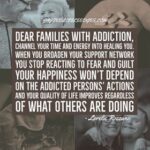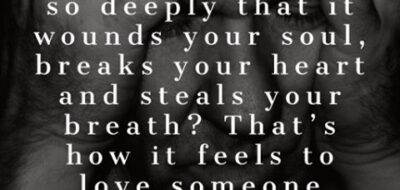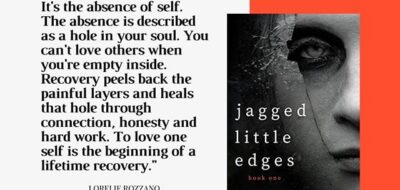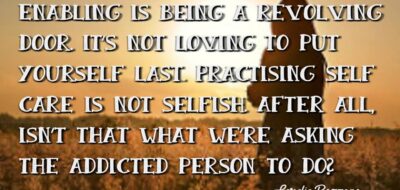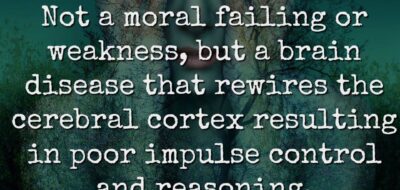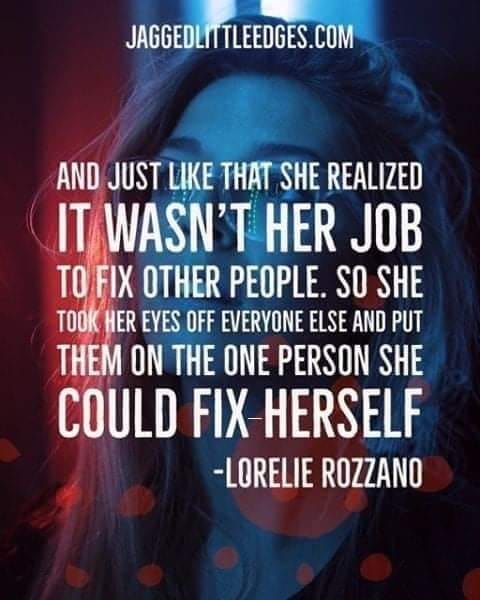
No more would she live for others
She stopped putting herself last
She stopped settling for crumbs
She stopped asking why
In front of the mirror, she finally understood
It was time for her to lead the way
Who’s Protecting You–From You?
It’s not news that addicted persons are dying in their quest to get high. Nor is it surprising they do awful things to feed their habit. As tolerance increases lying, stealing, and hurting people become the new normal. It’s hard to understand Trying to make sense of addiction, or get the addicted person to see through your eyes, will leave you feeling helpless, frustrated, and crazy.
Addiction is a progressive illness that doesn’t start with injecting heroin in your arm. It starts way before that. Some say the first time an addict uses, they can get addicted. Non-addicts use and get high too. They may drink and drive, or wake up sick or hung-over and feel ashamed of their behavior while under the influence. Non-addicts learn from their experience with alcohol and drugs and proceed cautiously around them.
Addicted persons, on the other hand, get high and then build a lifestyle around it. There is no caution. They go pedal to the metal all out! Addicts become addicted to the way they feel while under the influence. Each time the addict makes a poor choice, they minimize it by justifying. Justification becomes habitual, and their thinking becomes riddled with dishonesty. The addicts’ new normal becomes a maladjusted compass of justification, rationalization, procrastination, blame, and self-pity. Self-pity is a self-absorbed mindset allowing one to feel self-righteous in continued usage even at the expense of jobs, friends, and family.
Addicts lower their moral standards to stay in relationship with alcohol and drugs. For example: When I was using, I witnessed another addict having convulsions on the floor. His bladder let go in the process, and he urinated on himself. When his seizures stopped, and his eyes quit rolling, he stood up and demanded another hit.
Pretty sick. Right?
Yet this scenario plays out hundreds of times a day all over North America. With this image in mind, it’s easy to think the addict is the sick one. But all addicts don’t use drugs or drink copious amounts of alcohol.
Codependents can be addicts too. Ross Rosenberg, M.Ed., LCPC, CADC describes codependency as The inherently dysfunctional “codependency dance” requires two opposite but distinctly balanced partners: the pleaser/fixer (codependent) and the taker/controller (narcissist/addict).
Codependents have the disease-to-please, also known as relationship addiction. People struggling with this disorder often form or maintain relationships that are one-sided, emotionally destructive and/or abusive. They have low self-esteem and look for anything outside of themselves to make them feel better. They develop a sense of reward from being needed. In other words, they experience pleasure from the act (the same as an addict experiences pleasure from using) and become addicted to helping sick, needy people.
Codependents must lower their moral standards to stay in a relationship with addicted individuals. They mood-alter through rescuing, control, work, food, sex, shopping, dramatic and chaotic love relationships, drinking or using with their addicted partners, or using prescription medications like sleeping pills or benzodiazepines.
A codependent has little or no boundaries. Instead, they immerse themselves into their relationship, creating a pathological and compulsive dynamic, with the people they’re trying to help, rescue, and save. They will bankrupt themselves trying to rescue their loved one, and then become bitter when they’re taken advantage of. They feel like victims in their role of giving, even though they refuse to set limits. They justify their behaviors to enable their loved one’s addiction.
Both codependents and addicts struggle with relational problems. Although the relationship between these two is dysfunctional, it’s not what you think.
The codependent is other-focused, and the addict is substance focused. What both these individuals lack, is a healthy sense of self, and self-awareness.
Both parties will need help to identify triggers and unhealthy behavior patterns.
The next time you’re thinking about helping your addicted loved one, stop. Are you really the one who should be helping? If you’re the person the addict calls every time they’re in trouble, you’re probably not helping them. What you’re likely doing is enabling their illness. Which means you’ve developed the same dishonest thinking patterns they have.
Addicted persons aren’t the only ones who need protecting from themselves, codependents do too.
But there is good news.
If you’re tired of waiting for someone else to get well, make this your opportunity to find out all you can about enabling and codependency. Focus on you and changing the things you can. Recovering from the effects of addiction is possible. With the right support and tools, you can live a happy life no matter what your addicted loved one chooses.
Lorelie Rozzano
www.jaggedlittleedges.com
